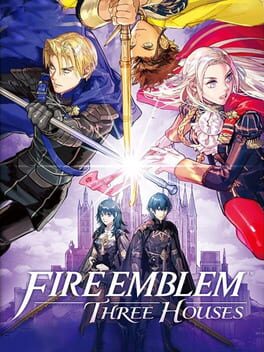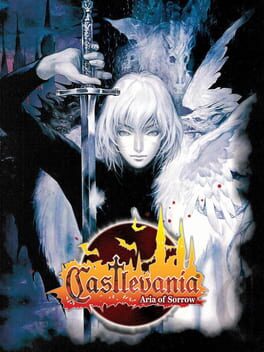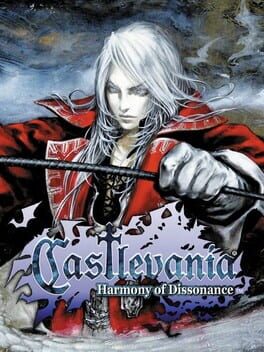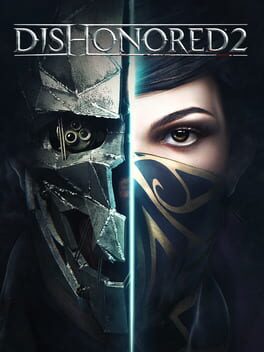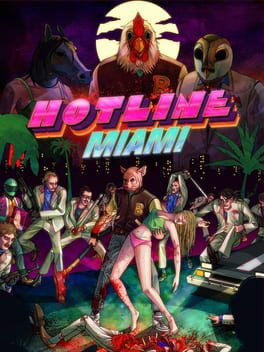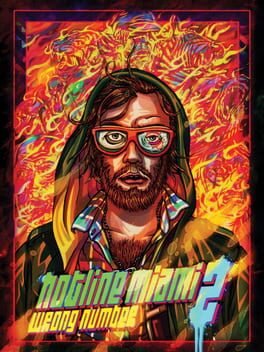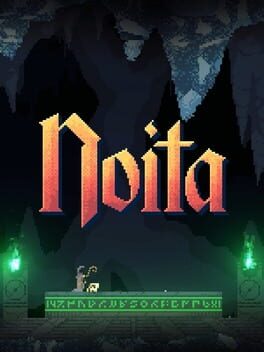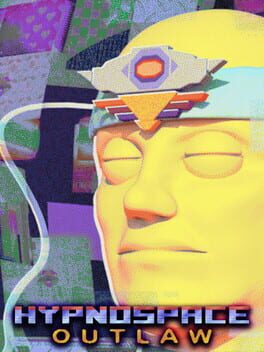Spectre_ship
Easily the most thought-provoking Fire Emblem game on all fronts--its many interlocking mechanics, its thematically complex plot, its infuriating yet enjoyable fishing minigame. The less-than-stellar graphics and it occasionally getting a little too micromanagey are minor black marks on an otherwise immaculate game.
1994
2015
2016
A pretty good immersive sim, building on the first game's mechanics quite respectably, especially in regards to resolving my biggest pet peeve with the original game, where there was no reliable nonlethal way to take down an enemy after being spotted. Has some very enjoyably high-concept levels; the one where you're jumping between past and future versions of the map was especially brilliant.
Didn't really stick with me the way the first game did, though. In particular, I think the story's noticeably weaker; it didn't have any story beat equivalent to the first game's famous twist, and the antagonist gives off some very serious 'budget Disney villain' vibes. Still pretty enjoyable, though, and I would recommend it even though I didn't think it was quite as good as the original.
Didn't really stick with me the way the first game did, though. In particular, I think the story's noticeably weaker; it didn't have any story beat equivalent to the first game's famous twist, and the antagonist gives off some very serious 'budget Disney villain' vibes. Still pretty enjoyable, though, and I would recommend it even though I didn't think it was quite as good as the original.
2018
2012
2020
One of the only neo-roguelikes to really capture the feeling of the classics like Nethack and Angband. The physics system opens the door to lots of bizarre and creative strategies that really give it the feeling of a world where anything can happen and emergent, unexpected strange things constantly occur.
2019
2016
This review contains spoilers
An incredible conclusion to the series. It takes all the right lessons from Bloodborne to patch up some of the mechanical oddities of the first two games, in particular striking a balance between the teleportation-between-bonfire mechanic from the start and 1's very particular sense of continually being on a long, arduous road. It has some of my favorite moments and areas in the series--Irithyll Dungeon in general and the assault on Lothric Castle's bridge being particular highlights--as well as a very respectable handful of my favorite bosses in the series.
I feel that Dark Souls III also has the strongest aesthetic of the Souls games. Though partly just a product of it being released last, and thus having the advantage of higher overall graphical fidelity, I think III also broadly has a much more refined sense of visual unity, making extensive use of lighting effects, color palette, and other techniques to forge broad-strokes visual unity between most areas in the game. Dark Souls III does an excellent job at cultivating the sense that the world is really, truly ending, rather than that a turn of a wheel is being completed, giving it a very genuine sense of finality and perhaps urgency.
This of course segues into the game's plotline, which I think is perhaps the most interesting in the Souls series. It has a very clear thematic throughline about the First Flame, which is made out to be the symbol of an utterly broken and pointless way of running the world, which at the time of III serves nobody at all, forged by dead gods as the symbol of their dominion over a world which no longer exists; even those who claim to be their successors are at best pretenders. Trying to perpetuate this is a worthless endeavor (as the first ending illustrates), and thus the player is forced to make the decision of whether it's better to snuff out this broken excuse for glory, hoping that one day the world will learn to live without it, or to take its power for their own to try and forge a better, if darker, world. It's poignant, ambiguous, and a lament for the smouldering of beauty and majesty into ash.
The game's soundtrack is also a highlight, with really excellent and memorable songs like Vordt of the Boreal Valley, Abyss Watchers, and Soul of Cinder (I actually prefer the music for Phase 1 of the fight over Phase 2), not to mention the unfortunately unused but hauntingly beautiful piece "For The Dark Soul".
I have my quibbles; off the top of my head, Poise could very much have been handled better, and one optional boss inexplicably has a very Bed of Chaos feel to it while a main story one suffers from a moderate case of Pinwheel syndrome. But these are tiny specks of dust on a masterwork painting.
I feel that Dark Souls III also has the strongest aesthetic of the Souls games. Though partly just a product of it being released last, and thus having the advantage of higher overall graphical fidelity, I think III also broadly has a much more refined sense of visual unity, making extensive use of lighting effects, color palette, and other techniques to forge broad-strokes visual unity between most areas in the game. Dark Souls III does an excellent job at cultivating the sense that the world is really, truly ending, rather than that a turn of a wheel is being completed, giving it a very genuine sense of finality and perhaps urgency.
This of course segues into the game's plotline, which I think is perhaps the most interesting in the Souls series. It has a very clear thematic throughline about the First Flame, which is made out to be the symbol of an utterly broken and pointless way of running the world, which at the time of III serves nobody at all, forged by dead gods as the symbol of their dominion over a world which no longer exists; even those who claim to be their successors are at best pretenders. Trying to perpetuate this is a worthless endeavor (as the first ending illustrates), and thus the player is forced to make the decision of whether it's better to snuff out this broken excuse for glory, hoping that one day the world will learn to live without it, or to take its power for their own to try and forge a better, if darker, world. It's poignant, ambiguous, and a lament for the smouldering of beauty and majesty into ash.
The game's soundtrack is also a highlight, with really excellent and memorable songs like Vordt of the Boreal Valley, Abyss Watchers, and Soul of Cinder (I actually prefer the music for Phase 1 of the fight over Phase 2), not to mention the unfortunately unused but hauntingly beautiful piece "For The Dark Soul".
I have my quibbles; off the top of my head, Poise could very much have been handled better, and one optional boss inexplicably has a very Bed of Chaos feel to it while a main story one suffers from a moderate case of Pinwheel syndrome. But these are tiny specks of dust on a masterwork painting.
